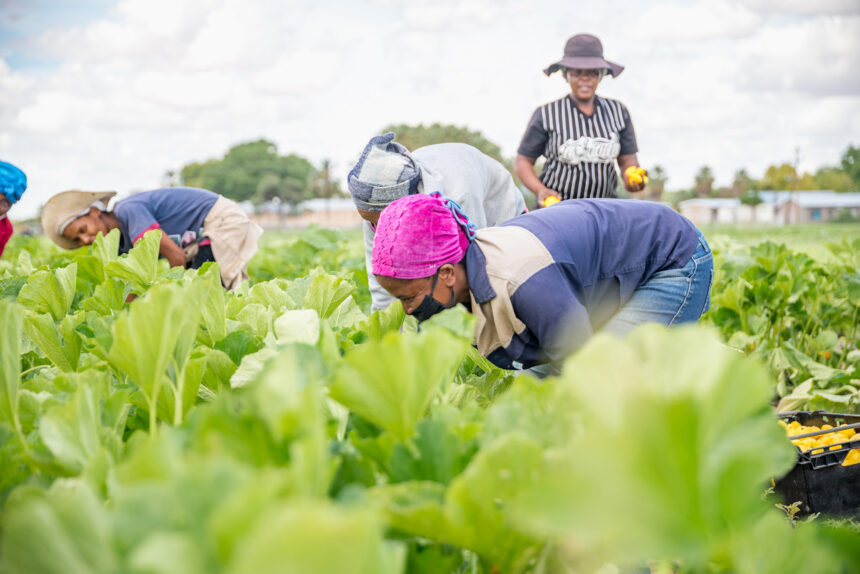KEETMANSHOOP – For farmers in southern Namibia, farming is not just a hobby or leisure activity, but is a way of life, a vital means of survival.
It has for generations been a gateway to a better life.
Veteran farmer Nico Strauss, chairman of the Karasburg Streekslandbou Union, shared with AgriToday that most farmers in the southern parts of the country are now taking up farming as a full-time profession and an avenue for sustainable food production.
“For generations, farmers in southern Namibia have persevered, worked with what they have and built a legacy for their children. We know that agriculture is not just about green grass and open fields, as it also requires determination, planning and adaptability to overcome challenges. It is not a solitary struggle, but rather a community-driven profession,” he said.
Following prolonged periods of drought in most parts of the country, Strauss is happy with the recent above-average rainfall that has covered most areas of the country, including most southern towns and settlements.
“Here, in the far south, in places like Grϋnau, Karasburg, Ariamsvlei and Warmbad, there has been good rain in some areas, but large parts remain dry. We are hoping and praying that the months of April and May will bring some relief to us in terms of rain,” he stated.
Strauss applauded government for assisting them during the peak drought periods, especially through subsidies, food and transportation to move animals from dry areas to greener ones.
“Some farmers have already received payments, while others are still waiting to get drought relief payments to subsidise their operations. But gaps still remain in the system, as not all farmers have the capital to buy animal feed upfront for themselves before they can submit claims to government for assistance. A system of animal feed vouchers could be a practical solution, whilst claims will be much more effective if we can submit it online. So, that is an area we need to look at,” he pointed out.
Cross border
Touching on issues around market access and economic challenges, he said South Africa has been for many years an important market for Namibian farmers.
However, strict regulations and border challenges make the process of doing business with the South African lucrative markets increasingly difficult.
“Trucks spend hours at border posts due to documentation and import-export regulations. With such challenges, a more efficient electronic system is required to ensure smoother trade activities. When loads are delayed for hours at the border posts, it affects not only the farmers, but the entire economy,” Strauss said.
He bemoaned the complexity of the unnecessary restrictions when making electronic fund transfers (EFT) swift payments to South Africa.
The process requires a lot of time and paperwork, whereby modern technology could have resolved such challenges.
“Technology has opened many doors – from online banking to cloud-based accounting and communication platforms like WhatsApp. In addition, systems like NamLITS can help streamline our administration. Regrettably, at present, all this wonderful technology is out of reach for us in the south, as internet access in most parts is either poor or non-existent,” he told AgriToday. In closing, he advised farmers to focus on diversification as a strategic tool in farming expansion rather than a survival mechanism.
“Some farmers have already begun diversifying into vegetable production, poultry, pig farming and guest farms, which is a good strategy, but it must be sustainable and profitable,” Strauss said.
He urged farmers who are not yet members of the Namibia Agricultural Union (NAU) or similar associations to seriously consider joining them.
“It is essential that we work together, address common challenges and have a united voice when negotiating with decision-makers.These farmers’ representative bodies foster good relationships with government – and together, we can all do better,” he remarked.
– sklukowski@nepc.com.na


